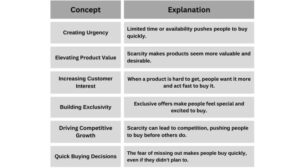
Measuring link popularity score is a crucial aspect of digital marketing that delves into how links influence a website’s visibility and ranking. In an online landscape that thrives on connectivity, understanding this score helps marketers gauge the effectiveness of their link-building strategies and overall online presence. High link popularity can significantly enhance search engine rankings, driving more organic traffic and credibility to a site.
This topic encompasses not only the mechanics of scoring link popularity but also the strategies needed to improve it. By exploring how quality backlinks contribute to a site’s authority, we can appreciate the intricate dance between links and online visibility.
Understanding Link Popularity Score

Link popularity is a crucial concept in the realm of digital marketing, representing the quantity and quality of links directed to a website from other sites. It plays a significant role in determining a website’s visibility and ranking on search engines. Essentially, the more reputable and relevant sites that link back to your website, the higher the perceived value and authority of your site.
This is especially important because search engines, particularly Google, utilize link popularity as a significant ranking factor in their algorithms, influencing how and where a site appears in search results.Link popularity can dramatically impact website ranking in several ways. A higher link popularity score often correlates with improved search engine rankings. For example, a small business with a few high-quality backlinks from authoritative sources, like well-known industry blogs or reputable news websites, is more likely to rank higher than a competitor with numerous low-quality links.
This illustrates the importance of not just the number of backlinks, but their credibility and relevance as well.
Methods for Measuring Link Popularity Score
Effectively measuring link popularity score involves several approaches that can provide insights into a website’s authority and performance. Understanding these methods is essential for any digital marketer looking to enhance their strategy. The following are key methods used to assess link popularity:
- Backlink Analysis Tools: Tools such as Moz, Ahrefs, and SEMrush provide detailed reports on backlinks, including the number of links, referring domains, and the quality of those links. These insights help determine the strength of a website’s link profile.
- Domain Authority and Page Authority: Metrics like Domain Authority (DA) and Page Authority (PA) from Moz gauge the strength of a website based on its backlinks. Higher scores indicate a greater likelihood of ranking well in search engine results.
- Competitor Benchmarking: Analyzing the link profiles of competitors can provide valuable insights. By understanding where competitors are gaining their links and the types of content that attract those links, strategies can be formulated to enhance one’s own link-building efforts.
- Quality Assessment of Backlinks: Not all links are created equal. Evaluating the quality of backlinks in terms of relevance, authority, and trustworthiness is vital. For instance, a link from a leading industry publication carries more weight than a link from a lesser-known blog.
- Link Growth Trends: Monitoring the growth of backlinks over time can indicate the effectiveness of strategies. A consistent increase in high-quality links often corresponds with improved rankings.
By using these methods to measure link popularity score, digital marketers can better understand their website’s position in the competitive landscape and make informed decisions to enhance their online presence.
Strategies for Building Link Popularity
Building link popularity is essential for improving a website’s authority and visibility in search engine results. A well-planned approach to creating high-quality backlinks can significantly enhance your online presence. By leveraging effective strategies, you can foster relationships with reputable sources while ensuring your content stands out in a crowded digital landscape.Content creation plays a critical role in link building. High-quality, relevant content attracts attention and encourages other websites to link back to your site.
When your content provides value, whether through engaging articles, comprehensive guides, or useful tools, it becomes a resource that others want to reference. This not only boosts your link popularity but also enhances your credibility in your niche.
Techniques for Creating High-Quality Backlinks
To build a robust link profile, consider implementing the following techniques that focus on creating valuable backlinks:
- Guest Blogging: Write insightful articles for other reputable blogs in your industry. Include a link back to your website in your author bio or within the content, where appropriate.
- Resource Pages: Identify resource pages within your niche that curate valuable links. Reach out to the webmasters and suggest adding your content if it aligns with their resource list.
- Infographics: Create visually appealing infographics that present data in an easy-to-digest format. These are often shared widely, leading to backlinks from those who find the information useful.
- Industry Partnerships: Collaborate with other businesses or influencers in your field to create content together. This not only provides valuable insights but also results in mutual backlinks.
Role of Content Creation in Link Building
Creating high-quality content is foundational to effective link building. The more valuable and relevant your content, the higher the likelihood that others will link to it. Here are several key aspects of how content influences link popularity:
- Original Research and Data: Conducting original research can result in unique insights that other websites want to quote, leading to natural backlinks.
- Comprehensive Guides: Writing in-depth guides on specific topics not only helps readers but also positions you as an authority, encouraging links from those referencing your expertise.
- Engaging Formats: Utilizing various formats such as videos, podcasts, and interactive content can engage users more effectively, increasing the chances of being linked to.
- Optimization: Ensuring your content is optimized for search engines helps it rank higher, making it more discoverable and likely to be linked by others.
Outreach Strategies for Acquiring Links
Developing outreach strategies is crucial for building relationships that lead to valuable backlinks. Below are effective approaches for acquiring links from reputable sources:
- Personalized Email Outreach: Craft tailored emails to website owners, highlighting how your content aligns with their audience’s interests. Personalization increases the chance of a positive response.
- Influencer Engagement: Build relationships with influencers in your niche. They may share your content, leading to increased visibility and potential backlinks.
- Social Media Promotion: Share your content on social media platforms and engage with users, including industry leaders. This can prompt shares and links.
- Network at Industry Events: Attend conferences and webinars to connect with other professionals. Building personal relationships can lead to link opportunities.
High-quality backlinks are not just about quantity but also about the relevance and authority of the linking domains.
Integrating Link Popularity with Other Marketing Efforts

Link popularity is not just a standalone metric; it plays a significant role in the broader context of various marketing strategies. By understanding how link popularity interacts with other marketing efforts, businesses can create more cohesive and effective campaigns. This section dives into the interplay between link popularity, list building, paid surveys, podcasting, and PPC advertising.
Comparison of Link Popularity and List Building
Link popularity and list building are interconnected elements of digital marketing. While link popularity enhances website visibility and search engine rankings, list building focuses on gathering contact information from visitors for future marketing endeavors. Together, they create a powerful synergy that can lead to more conversions and customer engagement.
- Visibility and Reach: High link popularity increases a website’s visibility, attracting more traffic. This influx provides a prime opportunity for list building through opt-in forms or lead magnets.
- Targeted Audience: As link popularity drives relevant visitors to a site, businesses can tailor their list-building strategies to attract individuals genuinely interested in their offerings.
- Engagement and Retention: An effective list-building strategy can nurture leads through personalized communication, increasing the likelihood of repeat visits and backlinks, further enhancing link popularity.
Relationship Between Link Popularity and Paid Surveys
Paid surveys can significantly benefit from link popularity as they often require high traffic for effective results. When a business possesses a strong link popularity score, it can direct more participants to their paid survey campaigns, driving engagement and completion rates.
- Increased Participation: Websites with high link popularity tend to attract more visitors, which can lead to a larger pool of respondents for paid surveys.
- Quality Feedback: Engaging a targeted audience through effective link strategies ensures that feedback from surveys is more valuable and relevant.
- Enhanced Credibility: A site recognized for its link popularity can bolster the perceived credibility of the surveys it conducts, encouraging more participants to provide genuine insights.
Influence of Link Popularity on Podcasting and PPC Advertising
Link popularity can significantly impact both podcasting and PPC advertising strategies, shaping how these marketing efforts develop and perform.
- Podcast Discovery: High link popularity enhances a podcast’s visibility on search engines and social media platforms, leading to increased downloads and subscriptions.
- Traffic Generation: Well-placed links within podcast show notes can drive traffic to a website, facilitating better lead generation and conversion opportunities.
- PPC Strategy Optimization: A website’s link popularity influences its Quality Score in PPC advertising, affecting ad placement and costs. Higher link popularity generally leads to lower PPC costs, making campaigns more effective.
“Link popularity is a cornerstone of digital marketing that influences various strategies, from list building to PPC advertising.”
Concluding Remarks
In summary, measuring link popularity score is an essential practice for anyone looking to enhance their digital marketing efforts. By understanding the significance of link popularity and employing effective strategies for improvement, businesses can elevate their online presence and drive more audiences to their content. As we navigate through the complexities of the digital age, maintaining a robust link profile becomes more critical than ever for achieving success.
Essential FAQs
What is link popularity score?
Link popularity score is a metric that evaluates the quantity and quality of backlinks to a website, influencing its ranking in search engine results.
Why is link popularity important?
Link popularity is important because it helps improve a website’s visibility, credibility, and authority in search engines, attracting more organic traffic.
How can I improve my link popularity score?
You can improve your link popularity score by creating high-quality content, reaching out to reputable websites for backlinks, and engaging in effective digital marketing strategies.
What role does content play in link building?
Content plays a vital role in link building as high-quality, relevant content attracts backlinks from other sites, enhancing link popularity.
How often should I monitor my link popularity score?
It’s advisable to monitor your link popularity score regularly, ideally monthly, to assess the effectiveness of your link-building strategies and make necessary adjustments.





